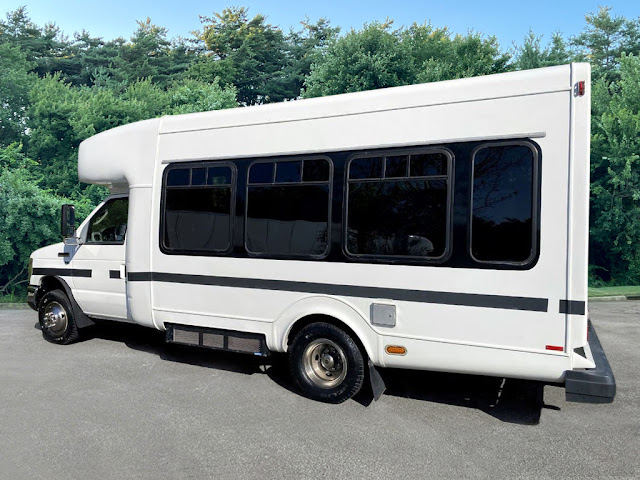Financing Used Buses | A Guide for Commercial Vehicle Buyers
Financing Used Buses: A Guide for Commercial Vehicle Buyers
Buying a used bus can be a great way to save money on transportation costs. However, it can also be a challenge to finance a used bus, especially if you are a new business or have a less-than-perfect credit score. Not for profit organizations and churches may be eligible for financing, but funders are not aggressively pursuing this business.
In this blog post, we will discuss the ins and outs of financing used buses. We will cover topics such as commercial vehicle financing versus consumer vehicle financing, used vehicle financing versus leasing, and the challenges of financing a used bus as a new business.
Commercial Vehicle Financing vs. Consumer Vehicle Financing
Commercial vehicle financing is different from consumer vehicle financing in a number of ways. For one, commercial vehicle financing is typically more expensive than consumer vehicle financing. This is because commercial vehicles are used for business purposes, which means they are more likely to be involved in accidents and require repairs and borrowers do not have a manufacturers warranty to cover the cost of repairs.
In addition, commercial vehicle financing is often subject to different regulations than consumer vehicle financing. For example, commercial vehicle borrowers may be required to obtain a license from the state in which they operate.
Used Vehicle Financing vs. Leasing
Used vehicle financing and leasing are two different ways to finance a used bus. With financing, you purchase the bus and make monthly payments until the loan is paid off. With leasing, your contract for leasing the bus is for a set period of time and monthly lease payments are made.
Leasing is a good option for businesses that need a bus for a shorter period of time or that do not want to make a large upfront investment or recording the ownership of the vehicle on the financial reports of the enterprise or organization. However, leasing is typically more expensive than financing because leasing puts additional burdens on the funding source administratively.
The Challenges of Financing a Used Bus as a New Business
New businesses face additional challenges when it comes to financing a used bus. This is because they do not have a previous credit history and represent a substantially higher credit risk of default.
To overcome these challenges, new businesses should be prepared to provide lenders with a business plan and financial projections. They should also be prepared to offer a personal guarantee or collateral including security deposits and cross-corporate guarantees.
Other Considerations
In addition to the above, there are a few other things to keep in mind when financing a used bus:
* Interest rates: Interest rates for used bus financing can vary depending on the lender, the type of bus, and the borrower’s credit score. In new vehicle financing, manufacturers often subsidize the Interest rate to facilitate the sale.
* Down payments: Most lenders require a down payment of 10-20% of the purchase price of a used bus.
* Residual value: In most cases, there is no residual value in a used bus lease. This means that typically you will be responsible for the full purchase price of the bus by the end of the lease term.
* Lease charges: Lease charges and administrative fees are typically not refundable, even if you return the bus early.
Buying a used bus can be a great way to save money on transportation costs. However, it can also be a challenge to finance a used bus, especially if you are a new business or have a less-than-perfect credit score. Not for profit organizations and churches may be eligible for financing, but funders are not aggressively pursuing this business.
In this blog post, we will discuss the ins and outs of financing used buses. We will cover topics such as commercial vehicle financing versus consumer vehicle financing, used vehicle financing versus leasing, and the challenges of financing a used bus as a new business.
Conclusion
Financing a used bus can be a challenge, but it is possible with the right preparation and planning. By understanding the different types of financing options available and the challenges that new businesses face, you can increase your chances of securing a loan for your used bus.
Superiorbuses.com office various financing options. Contact our representatives for additional information at your convenience.
We hope this blog post has been helpful. If you have any questions, please feel free to contact us at Superiorbuses@gmail.com or call 516-692-1111.
Sincerely,
The Superiorbuses.com Team
Disclaimer:
The information provided in this blog post is for informational purposes only and should not be construed as financial advice. Please consult with a financial advisor before making any decisions about financing a used bus.






Comments
Post a Comment